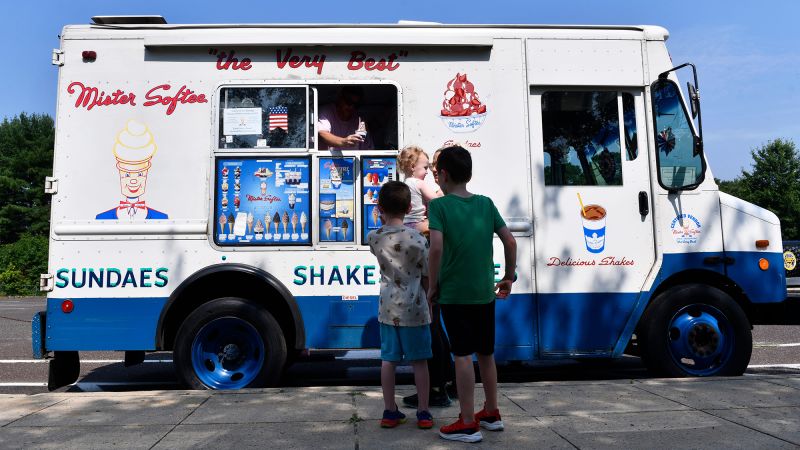Once a dominant force in the ice cream truck industry, Mister Softee is now struggling to survive. With only around 630 trucks left compared to over 2,000 at its peak in the 1960s, the company is facing increased competition, rising costs, and changing social trends. Factors like hot weather, smaller family sizes, and technological advances all play a role in the decline of Mister Softee’s business. The vice president of the company, Mike Conway, acknowledges the challenges, citing the growing popularity of ice cream and the increasing number of businesses entering the market.
Founded in 1954 by brothers James and William Conway, Mister Softee gained popularity through its soft-serve ice cream and iconic jingle. The decision to focus on soft ice cream was driven by the need for volume to sustain the business. However, many franchise owners are now questioning how much longer they can stay in business due to rising expenses and competition. Franchisees, often first-generation immigrants and small business owners, are responsible for setting prices and choosing selling locations within their assigned neighborhoods.
Mister Softee franchise owner Carlos Vazquez has seen the costs of running his business skyrocket since the pandemic. From licensing fees to ice cream supplies to vehicle maintenance, every aspect of the business has become more expensive. Inflation on ice cream and cones has forced him to increase prices, resulting in decreased sales. Additionally, turf wars with independent trucks for prime selling spots have added to the challenges faced by franchise owners. Despite the obstacles, Vazquez remains determined to stay in the industry and continue serving customers.
Extreme heat has also taken a toll on Mister Softee’s business, as equipment in the trucks breaks down more easily during hot weather and customers prefer to stay indoors. The 2024 summer has been the hottest on record for many US cities, leading to a decrease in ice cream sales across the country. Changes in neighborhood demographics and family sizes have also impacted Mister Softee’s business, as children are less likely to play outside and families are smaller than in previous decades. To adapt, franchisees are extending the ice cream season and catering to private events, while the company has introduced a mobile app to help customers locate trucks.
Despite the challenges facing Mister Softee, the company remains an iconic presence in the ice cream truck industry. As the business landscape continues to evolve, franchise owners like Carlos Vazquez are determined to adapt and find ways to sustain their operations. Mister Softee’s history and legacy serve as a reminder of the changing dynamics of the ice cream business, influenced by factors such as competition, weather, and societal trends. By navigating these challenges and embracing innovation, Mister Softee hopes to continue serving customers and remaining a beloved part of American culture.













